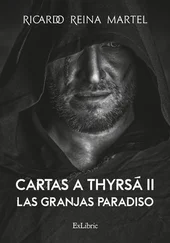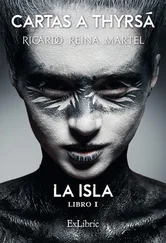“There may very well be feral giraffes and feral hippos living in Tokyo and a polar bear living freely in Calcutta. We just don’t believe there was a tiger living in your lifeboat.”
“The arrogance of big-city folk! You grant your metropolises all the animals of Eden, but you deny my hamlet the merest Bengal tiger!”
“Mr. Patel, please calm down.”
“If you stumble at mere believability, what are you living for? Isn’t love hard to believe?”
“Mr. Patel—”
“Don’t you bully me with your politeness! Love is hard to believe, ask any lover. Life is hard to believe, ask any scientist. God is hard to believe, ask any believer. What is your problem with hard to believe?”
“We’re just being reasonable.”
“So am I! I applied my reason at every moment. Reason is excellent for getting food, clothing and shelter. Reason is the very best tool kit. Nothing beats reason for keeping tigers away. But be excessively reasonable and you risk throwing out the universe with the bathwater.”
“Calm down, Mr. Patel, calm down.”
Mr. Chiba: “The bathwater? Why is he talking about bathwater?”
“How can I be calm? You should have seen Richard Parker!”
“Yes, yes.”
“Huge. Teeth like this! Claws like scimitars!”
Mr. Chiba: “What are scimitars?”
Mr. Okamoto: “Chiba-san, instead of asking stupid vocabulary questions, why don’t you make yourself useful? This boy is a tough nut to crack. Do something!”
Mr. Chiba: “Look! A chocolate bar!”
Pi Patel: “Wonderful!”
[Long silence]
Mr. Okamoto: “Like he hasn’t already stolen our whole lunch. Soon he’ll be demanding tempura.”
[Long silence]
Mr. Okamoto: “We are losing sight of the point of this investigation. We are here because of the sinking of a cargo ship. You are the sole survivor. And you were only a passenger. You bear no responsibility for what happened. We—”
“Chocolate is so good!”
“We are not seeking to lay criminal charges. You are an innocent victim of a tragedy at sea. We are only trying to determine why and how the Tsimtsum sank. We thought you might help us, Mr. Patel.”
[Silence]
“Mr. Patel?”
[Silence]
Pi Patel: “Tigers exist, lifeboats exist, oceans exist. Because the three have never come together in your narrow, limited experience, you refuse to believe that they might. Yet the plain fact is that the Tsimtsum brought them together and then sank.”
[Silence]
Mr. Okamoto: “What about this Frenchman?”
“What about him?”
“Two blind people in two separate lifeboats meeting up in the Pacific—the coincidence seems a little far-fetched, no?”
“It certainly does.”
“We find it very unlikely.”
“So is winning the lottery, yet someone always wins.”
“We find it extremely hard to believe.”
“So did I.”
“I knew we should have taken the day off.You talked about food?”
“We did.”
“He knew a lot about food.”
“If you can call it food.”
“The cook on the Tsimtsum was a Frenchman.”
“There are Frenchmen all over the world.”
“Maybe the Frenchman you met was the cook.”
“Maybe. How should I know? I never saw him. I was blind. Then Richard Parker ate him alive.”
“How convenient.”
“Not at all. It was horrific and it stank. By the way, how do you explain the meerkat bones in the lifeboat?”
“Yes, the bones of a small animal were—”
“More than one!”
“—of some small animals were found in the lifeboat. They must have come from the ship.”
“We had no meerkats at the zoo.”
“We have no proof they were meerkat bones.”
Mr. Chiba: “Maybe they were banana bones! Ha! Ha! Ha! Ha! Ha!”
“Atsuro, shut up!”
“I’m very sorry, Okamoto-san. It’s the fatigue.”
“You’re bringing our service into disrepute!”
“Very sorry, Okamoto-san.”
Mr. Okamoto: “They could be bones from another small animal.”
“They were meerkats.”
“They could be mongooses.”
“The mongooses at the zoo didn’t sell. They stayed in India.”
“They could be shipboard pests, like rats. Mongooses are common in India.”
“Mongooses as shipboard pests?”
“Why not?”
“Who swam in the stormy Pacific, several of them, to the lifeboat? That’s a little hard to believe, wouldn’t you say?”
“Less hard to believe than some of the things we’ve heard in the last two hours. Perhaps the mongooses were already aboard the lifeboat, like the rat you mentioned.”
“Simply amazing the number of animals in that lifeboat.”
“Simply amazing.”
“A real jungle.”
“Yes.”
“Those bones are meerkat bones. Have them checked by an expert.”
“There weren’t that many left. And there were no heads.”
“I used them as bait.”
“It’s doubtful an expert could tell whether they were meerkat bones or mongoose bones.”
“Find yourself a forensic zoologist.”
“All right, Mr. Patel! You win. We cannot explain the presence of meerkat bones, if that is what they are, in the lifeboat. But that is not our concern here. We are here because a Japanese cargo ship owned by Oika Shipping Company, flying the Panamanian flag, sank in the Pacific.”
“Something I never forget, not for a minute. I lost my whole family.”
“We’re sorry about that.”
“Not as much as I am.”
[Long silence]
Mr. Chiba: “What do we do now?”
Mr. Okamoto: “I don’t know.”
[Long silence]
Pi Patel: “Would you like a cookie?”
Mr. Okamoto: “Yes, that would be nice. Thank you.”
Mr. Chiba: “Thank you.”
[Long silence]
Mr. Okamoto: “It’s a nice day.”
Pi Patel: “Yes. Sunny.”
[Long silence]
Pi Patel: “Is this your first visit to Mexico?”
Mr. Okamoto: “Yes, it is.”
“Mine too.”
[Long silence]
Pi Patel: “So, you didn’t like my story?”
Mr. Okamoto: “No, we liked it very much. Didn’t we, Atsuro? We will remember it for a long, long time.”
Mr. Chiba: “We will.”
[Silence]
Mr. Okamoto: “But for the purposes of our investigation, we would like to know what really happened.”
“What really happened?”
“Yes.”
“So you want another story?”
“Uhh … no. We would like to know what really happened.”
“Doesn’t the telling of something always become a story?”
“Uhh … perhaps in English. In Japanese a story would have an element of invention in it. We don’t want any invention. We want the ‘straight facts’, as you say in English.”
“Isn’t telling about something—using words, English or Japanese—already something of an invention? Isn’t just looking upon this world already something of an invention?”
“Uhh …”
“The world isn’t just the way it is. It is how we understand it, no? And in understanding something, we bring something to it, no? Doesn’t that make life a story?”
“Ha! Ha! Ha! You are very intelligent, Mr. Patel.”
Mr. Chiba: “What is he talking about?”
“I have no idea.”
Pi Patel: “You want words that reflect reality?”
“Yes.”
“Words that do not contradict reality?”
“Exactly.”
“But tigers don’t contradict reality.”
“Oh please, no more tigers.”
Читать дальше












